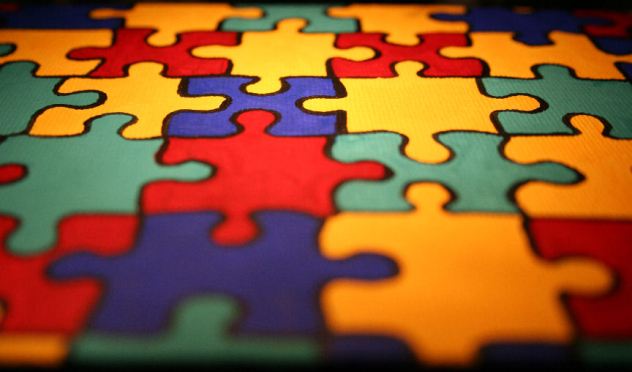
April is Autism Awareness Month, which brings awareness to how vision therapy can positively impact those on the autism spectrum. The College of Optometrists in Vision Development (COVD) is helping to spread the word about the importance of a diagnosis for autism by scheduling a thorough examination by a developmental optometrist. Vision for Life works directly with your child to diagnose and improve any challenges with his or her vision. Our goal is to improve your child’s overall well-being and happiness.
Vision problems can be common in individuals with autism and can often go undiagnosed. Fortunately, vision problems can be properly diagnosed with a complete developmental evaluation that goes beyond what a standard 20/20 eye screening is capable of doing for your child. Sometimes, autism can also be incorrectly diagnosed as a vision problem that may mimic autism-like symptoms in some children. Regardless, vision therapy can make a positive impact to significantly improve symptoms and help your child’s communication and social skills.
At Vision for Life, our vision therapy programs help treat the visual problems that are common challenges autistic children may deal with to include:
- Wandering eyes
- Impulse control
- Light sensitivity
- Difficulty focusing on an object or obsessive focusing
- Scanning or looking to the side of an object
- Trouble maintaining attention
- Poor depth perception
- Lack of eye contact
The earlier families of children with autism or a vision problem undergo a visual examination and begin visual intervention, the successes and gains will be more prevalent. If your child has been diagnosed with autism, their motor, cognitive, speech and perceptual abilities can also become affected when his or her visual processing is impaired. If you notice one or more of the symptoms listed above in your child, it’s important to contact us for a complete vision evaluation to assist in confirmation of the diagnosis. Depending on the results of the vision testing, we can decide the route of vision therapy to best fit your child’s needs.
We will recommend vision therapy sessions that will treat his or her entire visual-motor system. Our developmental optometrist will examine the child’s neurological control system, altering reflexive behavior, which can result in a lasting cure. It is common that children with autism are hypersensitive and visually defensive. At Vision for Life, our therapy sessions are designed to help patients gain peripheral stability and process visual information better.
Prescription lenses may be recommended to compensate for nearsightedness, farsightedness or astigmatism. Also, it will be beneficial to begin optometric vision therapy designed to correct your child’s eye movements and visual-motor deficiencies. Vision therapy for your child may include non-invasive procedures such as simple age-appropriate exercises that are designed to enhance the brain’s ability to control the eye’s alignment, teaming, focusing, movements and visual processing.
Decreased visual awareness and poor eye contact can negatively affect your child’s socialization, and poor visualization can hinder the development of skills for imaginative play. Isn’t it time to learn more about our noninvasive, nonsurgical techniques to positively improve your child’s vision? We offer custom treatment options that have successfully helped individuals with autism lead a more fulfilled, happy life. Contact us today at 618-288-1489 to discuss treatments and therapies best suited for your family.